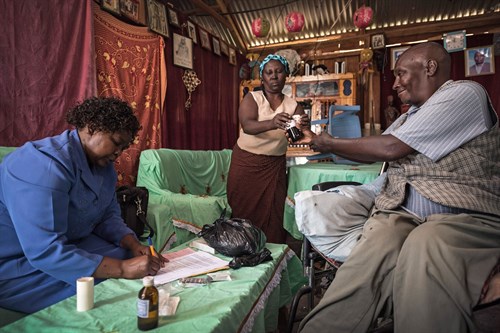The Link Between Drug Policy and Access to Medicines
Some 75% of the world’s population live in mostly low and middle income countries in which effective pain-relieving medicines are largely inaccessible.
27 Nov 2016How does drug control policy undermine access to medicines?
Virtually all governments have laws and regulations that control the public’s access to substances judged to be potentially harmful. Some of these controlled substances may have medical or scientific uses, yet they are inaccessible to people who could benefit from them. The result is that tens of millions of people suffer because they lack access to essential medicines.

What is the impact on people’s health?
More than five million terminal cancer patients and one million end-stage AIDS patients suffer from severe pain every year. Still others are forced to upend their lives to access the medicines they need—two-year-old Tristan Forde suffered 20 seizures a day until his family moved from rural Ireland to Colorado to legally access the medical marijuana that finally eased his suffering.
Many of these patients could benefit from morphine, the gold standard for the treatment of severe pain. Morphine is not expensive, but many governments severely limit its use. Over 90 percent of all morphine is used in a small number of high-income countries that are home to only 17 percent of the world’s population.
Click here to read the full article
If you have any comments please tweet us @idhdp or visit our facebook page
Doctors can lead the way to healthier drug policies – join IDHDP now
Share this on: